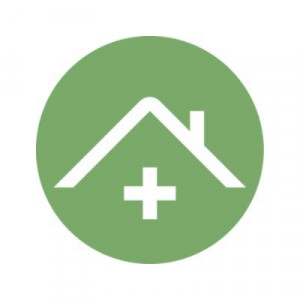Registered Nurse (RN)
Summary Description:
To plan and deliver nursing care to patients/residents requiring long-term rehabilitative care.
Essential Functions and Responsibilities:
- Works using the guidelines established by the Nurse Practice Act, facility Policies and Procedures, and sound nursing judgment.
- Assesses, plans and evaluates nursing care delivered to patients/residents requiring long-term and/or rehabilitation care.
- Delivers nursing care to patients/residents requiring long-term and/or rehabilitative care.
- Implements the patient/resident plan of care and evaluates the patient/resident response.
- Directs and supervises care provided by other nursing personnel.
- Provides input in the formulation and evaluation of standards of care.
- Maintains knowledge of necessary documentation requirements.
- Maintains knowledge of equipment set-up, maintenance and use (i.e. monitors, infusion devices, drain devices, etc.).
- Maintains confidentiality and compliance with patient/resident rights, relating to all patient/resident/personnel information.
- Provides patient/resident/family/caregiver education as appropriate and/or directed.
- Conducts self in a professional manner in compliance with unit and facility policies.
- Works rotating shifts, holidays and weekends as scheduled.
- Initiates emergency support measures, including CPR as appropriate and protects patients/residents from injury/harm.
- Assessment
- Admission and routine resident observations/transfer notes are complete and accurately reflect the patient's/resident's status.
- Documentation of observations is complete and reflects knowledge of unit documentation policies and procedures.
- Nursing history is present in the medical record for all patients/residents.
- Assessment identifies changes in the patient's/resident's physical and/or psychological condition (i.e., changes in lab data, vital signs, mental status).
- Planning of Care
- Nursing care plans are initiated/reviewed/individualized on assigned patients/residents in accordance with facility policies and procedures.
- Pertinent nursing problems/concerns are identified and communicated to appropriate personnel for correction. 2
- Goals are stated.
- Appropriate nursing orders are formulated.
- Evaluation of Care
- The effectiveness of nursing interventions, medications, etc., is evaluated and documented in accordance with facility policies and procedures.
- Care Plans:
- Evaluation of care plan is performed and documented in accordance with facility policies and procedures.
- The care plan is revised as indicated by the patient's/resident's status and in accordance with facility policies and procedures.
- General Patient/Resident Care
- Patient Resident is approached in a kind, gentle and friendly manner. Respect for the patient's/resident's dignity and privacy is consistently provided.
- Interventions are performed in a timely manner.
- Explanations for delays in answers/responses are provided. Independence by the patient/resident in activities of daily living is encouraged to the extent possible.
- Treatments are completed as indicated and documented in accordance with facility policy and procedure.
- Safety concerns are identified and appropriate actions are taken to maintain and assure patient safety including but not limited to:
- Side-rails and height of bed are adjusted.
- Patient Resident call light and equipment is within reach.
- Restraints, when used, are maintained properly.
- Rooms are neat and orderly.
- Patient Resident identification and allergy bands (if applicable) are present.
- Functional assignments are completed.
- Emergency situations are recognized and appropriate action is instituted.
- All emergency equipment can be readily located and operated (emergency oxygen supply, drug box, fire extinguisher, etc.).
- Patient/Resident Education/Discharge Planning
- The patient/resident and family are involved in the planning of care and treatment (documented on the plan of care).
- Patient Resident and/or family are provided with information related to all interventions and activities as indicated.
- Discharge/Death summaries are complete and accurate.
- Transfer forms are complete and accurate.
- Active participation in patient/resident care management is evident.
- Adherence to Facility Procedures
- Facility policy and procedure manuals or reference materials are utilized as needed.
- Procedures are performed in accordance with facility policies and procedures.
- Body substance precautions and other appropriate infection control practices are utilized with all nursing interventions.
- Safety guidelines established by the facility (i.e., proper needle disposal), are followed.
- Documentation
- The patient's/resident's full name and room number are present on all chart forms.
- Allergies are noted on chart cover.
- Only approved abbreviations are utilized.
- TPR graphic is completed accurately and timely.
- 1&O summaries are recorded and added accurately and timely.
- Blood pressure graphic is completed accurately and timely.
- Progress notes are timed, dated and signed with full signature and title.
- Unit flow-sheets are completed accurately and timely (i.e., wound care records, treatment records, IV therapy record, etc.).
- Medication Administrations/Parenteral Therapy Record
- Medication start and discontinue dates are documented. Medications are charted correctly with name, dose, route, site, time and initials of nurse administering.
- Pulse and BP are obtained and recorded as appropriate.
- Medications that are not administered are circled with a reason noted and the physician is notified if appropriate.
- Appropriate notes are written for medications not given and responsive actions are taken.
- Name and title of nurse administering medication is documented.
- Patient's/Resident's medication record is labeled with full name, room number, date and allergies. Policies and procedures for medication administration and counting of narcotics are followed.
- All parenteral fluids including additives are charted with time and date started, time infusion completed, site of infusion and signature of nurse.
- All parenteral fluids are administered according to the ordered infusion rate.
- Parenteral intake is accurately recorded on the unit flow sheet or l&O record.
- IV sites are monitored and catheters are changed according to facility policies and procedures. M. I bags and tubings are changed according to facility policies and procedures.
- Appropriate actions are taken related to identified IV infusion problems (infiltration, phlebitis, poor infusion, etc.) and facility policies and procedures.
- Coordination of Care
- Tests are scheduled and preps are completed as indicated.
- Co-workers are informed of changes in patient/resident condition or of any other changes occurring on the unit.
- Information is relayed to other members of the health care team (i.e., physicians, respiratory therapy, physical therapy, social services, etc.).
- Unit activities are coordinated (i.e., changing patients/residents rooms for admissions, coordinating transfer/discharge forms, etc.).
- Leadership
- Equitable care assignments are made prior to shift that are appropriate in meeting patient/resident needs.
- Staffing needs are communicated to the nursing supervisor.
- Assistance, direction and education are provided to unit personnel and families.
- Problems are identified, data is gathered, solutions are suggested and communications regarding the problems/concerns are appropriate.
- Transcription of all orders is checked.
- All work areas are neat and clean.
- Communication
- Change of shift report is complete, accurate and concise.
- Incident Reports are completed accurately and in a timely manner.
- Staff meetings are attended, if on duty, or minutes read and initialed if not on duty and attendance is not mandatory.
- Professionalism
- Decisions are made that reflect knowledge and good judgment and that demonstrate an awareness of patient/resident/family/physician needs.
- Awareness of own limitations is evident and assistance is sought when necessary.
- Dress code is adhered to.
- Committee meetings (if assigned) are attended.
- Reports related to the committee are given during staff meetings.
- Responsibility is taken for own professional growth.
- All mandatory and other in-services are attended as required.
- Organizational ability and time management is demonstrated.
- Confidentiality of patient/resident is respected at all times (i.e., when answering telephone and/or speaking to co-workers).
- Professional behavior is demonstrated at all times.
- Human Relations
- A positive working relationship with patients/residents, visitors and facility staff is demonstrated.
- Authority is acknowledged and response to the direction of supervisors is appropriate.
- Time is spent with patients/residents rather than other personnel.
- Co-workers are readily assisted as needed.
- Cost Awareness
- Supplies are used appropriately.
- Charge stickers (or charge system) are utilized appropriately.
- Minimal supplies are stored in the resident's room.
- Discharge medications are returned to the pharmacy or destroyed in a timely manner.
- Floor-stock medications are charged and re-stocked.
- Participates in the identification of staff educational needs.
- Serves as a preceptor, as delegated, for new staff.
- Maintains patient/resident care supplies, equipment and environment.
- Participates in the development of unit objectives.
- Participates in the quality assessment and improvement process and activities.
Other Duties:
- As this job description is not intended to be all-inclusive, the employee will be expected to perform other essential functions and duties as assigned.
Standard Responsibilities:
- Supports the Facility.
- Is knowledgeable of patient/resident rights and promotes an atmosphere which allows for the privacy, dignity and well-being of all residents in a safe, secure environment.
- Supports, cooperates with, and implements specific procedures and programs for:
- Safety, including precautions and safe work practices, established firel safety/disaster plans, risk management, and security, report and/or correct unsafe working conditions, equipment repair and maintenance needs.
- Confidentiality and privacy of all data, including patient/resident, employee and operations data.
- Compliance with all regulatory requirements.
- Compliance with and enforcement of current law and policy to provide a work environment free from harassment and all illegal and discriminatory behavior.
- Supports and participates in common teamwork:
- Cooperates and works together with all co-workers; plans and completes job duties with minimal supervisory direction, including appropriate judgment.
- Uses tactful, appropriate communications in sensitive and emotional situations.
- Reports complaints, problems and concerns regarding co-workers, management or patients/residents in accordance with facility policy.
- Promotes positive public relations with patients/residents, family members and guests.
- Complies with requirements for in-service training, acceptable attendance, uniform and dress codes including personal hygiene, and other work duties as assigned.
- Agrees to comply with the Code of Conduct.
Employment Standards:
Education:
Must be a graduate of a basic education program in professional nursing.
Experience:
A minimum of one year medical/surgical nursing experience in an acute care (hospital) setting or long-term care setting (acute/critical care is preferred).
License/Other:
Must possess a current RN license in state(s) of practice. Must have a reliable source of transportation.
Working Conditions:
Works in office areas as well as throughout the facility. Must be able to move about intermittently during working hours including standing, lifting, bending, stooping, twisting, pushing and pulling with or without accomodation. Must be able to read, write and speak the English language. Must be able to transfer residents and assist in emergency evacuations. Interacts with residents, family members, staff, visitors, government agencies/ personnel, etc., under all conditions/ circumstances. Must be able to relate and work with the disabled, ill, elderly, emotionally upset and at times, hostile people within the facility. May be involved in community/civic health matters/ projects. May be exposed to infectious waste, diseases, conditions, etc., including exposure to the AIDS and hepatitis B viruses. Must be able to effectively communicate with the management staff, medical staff, nursing staff, and other unit supervisors. Maintains a liaison with residents, their families, support staff, etc. to assure that the residents' needs are continually met.









